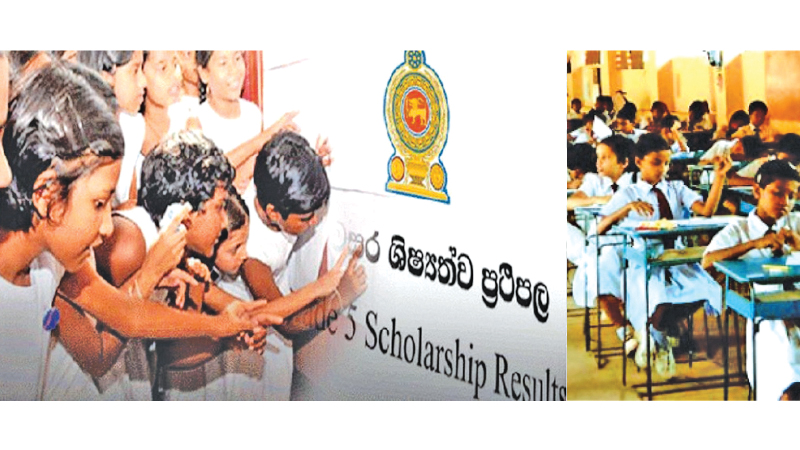The dispute over the 2024 Grade Five Scholarship Examination has caused considerable worry for students and parents across the country. Fears escalated following the reported leakage of multiple questions, prompting President Anura Kumara Dissanayake to order a two-week suspension of the paper marking process.
In mid-September, the Education Ministry declared that the grading of exam papers would be delayed until investigations by the Department of Examinations and the Criminal Investigations Department (CID) were concluded. This postponement has sparked concerns among parents and teachers regarding the possible injustice to students. Many children, who initially felt relief after completing the exam, now find themselves under the pressure of having to retake it, and some parents have demanded that the exam be conducted again.
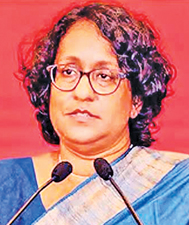
Prime Minister
Harini Amarasuriya
The Scholarship Exam took place on September 15 at 2,849 centres across the country, with 323,879 students participating. Results are anticipated in approximately 40 days. After the exam, it was reported that a government teacher, who also conducted tuition classes in the Alawwa area, had shared the question paper on social media as a model paper prior to the examination. Investigations are under way, and a planning director from the National Institute of Education (NIE) has been arrested by the CID and is currently in remand custody regarding the matter. Six teachers, including an assistant supervisor from an examination hall in Anuradhapura have also been questioned by the Department of Examinations due to a complaint lodged by parents, accusing them of sharing a photograph of the first question paper before the exam began and sending it to a group of teachers.
History of scholarship examination
Regarding the history of the scholarship examination, the Donoughmore Constitution of 1931 marked a significant change in Sri Lanka’s governance, granting greater authority to natives and enabling universal franchise for the first time in Asia. This led to the election of representatives through voting and established a State Council system for managing education. C.W.W. Kannangara, who served as Minister of Education under this system, enacted essential policy changes in the country’s educational framework.
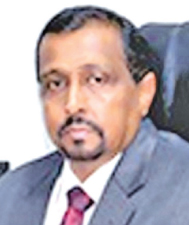
Commissioner General Examinations
Amith Jayasundara
C.W.W. Kannangara, Minister of Education from 1931 to 1947, initiated significant educational reforms, including the Grade 5 Scholarship Examination designed to provide talented students from low-income families with equal access to education.
The exam’s guidelines were revised over time, with key eligibility criteria established in 1942, requiring candidates to come from Government or assisted schools near Central Colleges, and to have a family income below Rs. 600. By 1944, the first 40 scholarships were awarded, allowing selected students to study at Central Colleges.
Competitive
However, today, the Grade 5 Scholarship Examination has become highly competitive, often the sole opportunity for rural children to gain entrance to prestigious urban schools. Today, it has ironically become known as the ‘Parent’s Exam’, reflecting parents’ determination to help their children gain entry into popular urban schools to ensure a quality education. This system has now become quite vicious and burdensome, as parents have been training their children from kindergarten to compete for the scholarship examination.
“Waiting for that report to take a decision” – Commissioner General
Amith Jayasundara, the Commissioner General of Examinations, expressed his frustration regarding the ongoing situation, stating that the protests made by parents have only exacerbated the chaos. “It’s really frustrating even to talk about this matter,” he said.
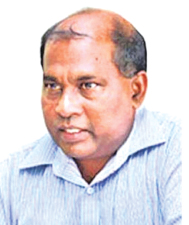
Joseph Stalin
He added that as soon as the issue arose, the Examination Department was able to engage in discussions with the Prime Minister and set up a committee. This committee submitted three options, and they chose the best and most fair option according to international assessment standards: to eliminate three problematic questions and award free marks to all students while continuing with paper marking.
However, the Commissioner said, “The situation took a new turn within these few days as parents started protesting, claiming that eight questions had been leaked, not just three.” In response to this claim, the President has asked to hold the paper marking process. The Commissioner General indicated that they had another discussion with the Prime Minister, during which a seven-member committee, consisting of educationists, professionals, and child psychologists. The Prime Minister called for a clarification on the actual number of leaked questions.
“We are eagerly waiting that report to take a decision,” the Commissioner General told the Sunday Observer.
“Free children from this burden” – Teacher
Janaki Munasinghe, an art teacher at Bope Rajasinghe Vidyalaya, expressed her strong disagreement with the harmful nature of the scholarship examination, speaking to the Sunday Observer. She believes that the examination stifles children’s creative potential and forces them into a competitive rat race from a very young age.
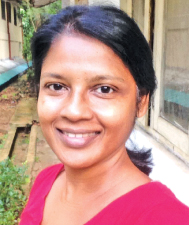
Teacher at Bope Rajasinghe Vidyalaya
Janaki Munasinghe
Janaki said, “I think the scholarship examination should be banned to free children from this burden they face at such an early age.” She emphasised that the issue lies not only with the parents, who ultimately desire the best education for their children, but also with an educational system that perpetuates these pressures. She said that the scholarship examination is perceived as the primary obstacle to gaining admission into urban, privileged schools that offer abundant resources.
It is a well-known fact that many families seek to enhance their social status by enrolling their children in these popular urban schools, which has created a false hierarchy within society. Janaki said, “Ironically, despite the emphasis on prestigious education, many of these children attend extra tutoring sessions, highlighting a shift away from genuine learning.”
Therefore, Janaki stressed the importance of recognising and addressing this vicious cycle. “We must make necessary policy decisions to ensure that every child in the country has access to quality education,” she said. As a teacher, she firmly believes that the scholarship examination induces stress in children and detracts from their ability to think creatively.
“There is no true equality in education” – Ceylon Teachers’ Union
“The authorities have continuously avoided creating a proper system by establishing a committee to ensure the credibility of the examination process, despite having faced similar fraud incidents in the past. The Examination Act, established in 1968 as Act No. 25, has not been revised to this day. According to this Act, the penalties for misconduct are rather lenient, and there is no evaluation process in place to ensure that culprits are adequately punished. As a result, examination fraud has become commonplace,” the General Secretary of the Ceylon Teachers’ Union, Joseph Stalin told the Sunday Observer.
In response to the recent fraud in the scholarship examination, the President has ordered a halt to the paper marking process and instructed relevant authorities to investigate the root cause immediately. “We hope that this time the relevant authorities will amend the Act and take measures to punish those responsible. The Examination Department must be reorganised and implement measures to prevent this issue from reoccurring in the future.” he said. Stalin said that while Kannangara’s education policy was based on the principle of equal rights to education for all, this has turned out to be a delusion, as there is no true equality in education in the country.
He said there are 10,126 schools in Sri Lanka, of which only 376 are national schools. The lack of equality in resources among these schools has led parents to strive to enroll their children in the most popular national schools. Out of the 376 national schools, only 36 are considered the most prestigious, intensifying the competition for admission.
Stalin said that although the primary objective of the scholarship examination was to provide opportunities for children from underprivileged families to gain entry to urban, privileged schools, it has unfortunately become a competition for everyone. He said that this attitude and system must change.
“The best interests of the children” – Prime Minister
Addressing a gathering on Children’s Day (1 October), Prime Minister Harini Amarasuriya shared her thoughts on the Government’s understanding of the current crisis and the measures they hope to implement to prevent similar chaotic situations in the future. She said that in today’s tumultuous society, children have become the primary victims. “The entire system has collapsed, and people no longer have faith in organisations or authorities,” she said. She highlighted that when adults lose their sense of responsibility and trust in the system, inevitably children suffer because they rely on adults for care and support.
The Prime Minister said that the Government’s main focus is on achieving structural change rather than targeting individual behaviour. “When the system is strong and effective, individuals will naturally adapt and improve,” she said. Therefore, she pointed out that it is crucial to prioritise long-term structural changes that will benefit society as a whole, which, in turn, will lead to individual benefits.
One significant issue in society, as outlined by the Prime Minister, is the widespread lack of faith in the education system, which poses a grave danger. The Government has acknowledged this problem and is placing special emphasis on education as a result.
“The scholarship examination has become a significant crisis in our country, reflecting the broader issues within our educational system,” she said. Prime Minister Amarasuriya said that increasing competitiveness in education has placed immense pressure on parents, making them victims of the very system they expect to navigate for their children’s success.
She also said that opportunities for quality education have dwindled day by day for the majority of the population, driving parents to pursue scholarship examinations to provide the best education for their children.
This crisis, as the Prime Minister said, has spiralled out of control due to misguided educational policies and a lack of timely decision-making by the authorities.
“The Government is discussing practical solutions to address this issue, and the President is particularly committed to finding resolutions,” she said. Prime Minister Amarasuriya expressed the Government’s desire to ensuring the mental well-being of all children in the country.
To tackle this crisis, the Government is collaborating closely with the Ministry of Education, the Examination Department, relevant authorities, educators, and professionals in the field. “We are also taking legal action against those responsible for perpetuating this issue and are implementing precautions to prevent similar crises in the future,” she said. The Prime Minister said that no child should experience undue pressure or stress from examinations and reiterated the Government’s commitment to taking steps to eliminate this problem, ultimately prioritising the best interests of the children.







